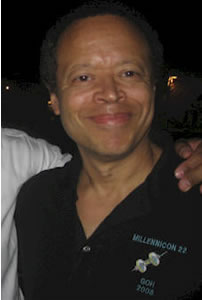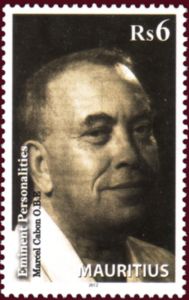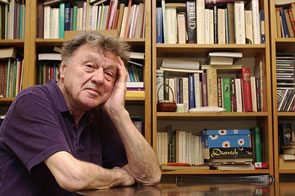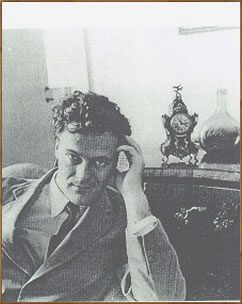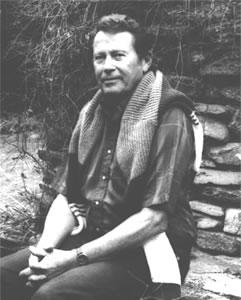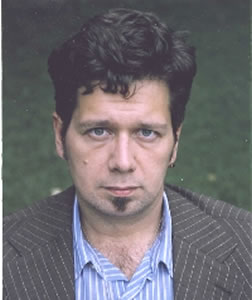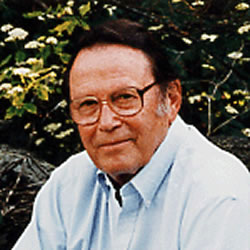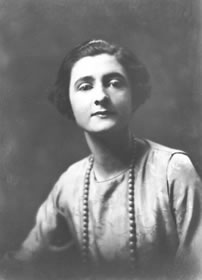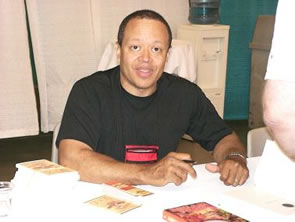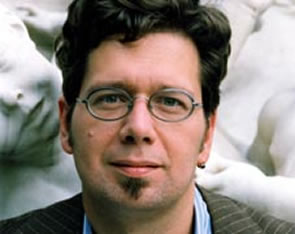De Britse schrijver Giles Lytton Strachey werd geboren op 1 maart 1880 in Londen. Hij studeerde geschiedenis in Cambridge waar hij lid was van het Apostles dispuut. Zo maakte hij kennis met de filosoof G.E. Moore, John Maynard Keynes and Leonard Woolf. Hij raakte ook bevriend met Thoby Stephen and Clive Bell. Na 1905 zou zich rond deze figuren en Stephens zusters Vanessa Bell en Virginia Woolf de Bloomsbury Groep vormen.Tussen 1904 en 1914 schreef Strachey literaire- en theaterkritieken voor het weekblad The Spectator. Hij publiceerde gedichten en bundelde een aantal kritieken in Landmarks in French Literature (1912). Gedurende de Eerste Wereldoorlog was Strachey een gewetensbezwaarde en verkeerde hij veel in anti-oorlogskringen als die van Lady Ottoline Morrell.Veel succes had hij in 1918 met Eminent Victorians, een viertal korte biografieën van vooraanstaande Victoriaanse figuren: kardinaal Manning, Florence Nightingale, Thomas Arnold en generaal Gordon. Het boek trok de aandacht door de droge humor waarmee Strachey de menselijke zwakheden van deze bewonderde iconen beschreef. Zijn uitbeelding van de hypocrisie van de Victoriaanse moraal had veel invloed op beoordeling van het tijdperk. In dezelfde stijl publiceerde hij in 1921 een biografie van koningin Victoria zelf.Strachey was homoseksueel en had relaties met o.a. Duncan Grant en John Maynard Keynes. Veel details over Stracheys leven werden bekend door de publicatie van Michael Holroyds biografie (1967) en die van Stracheys correspondentie, geredigeerd door Paul Levy (2005).
Uit: Queen Victoria
“After a year at Bonn, the time had come for a foreign tour, and Baron Stockmar arrived from England to accompany the Prince on an expedition to Italy. The Baron had been already, two years previously, consulted by King Leopold as to his views upon the proposed marriage of Albert and Victoria. His reply had been remarkable. With a characteristic foresight, a characteristic absence of optimism, a characteristic sense of the moral elements in the situation, Stockmar had pointed out what were, in his opinion, the conditions essential to make the marriage a success. Albert, he wrote, “was a fine young fellow, well grown for his age, with agreeable and valuable qualities; and it was probable that in a few years he would turn out a strong handsome man, of a kindly, simple, yet dignified demeanour. Thus, externally, he possesses all that pleases the sex, and at all times and in all countries must please.” Supposing, therefore, that Victoria herself was in favour of the marriage, the further question arose as to whether Albert’s mental qualities were such as to fit him for the position of husband of the Queen of England. On this point, continued the Baron, one heard much to his credit; the Prince was said to be discreet and intelligent; but all such judgments were necessarily partial, and the Baron preferred to reserve his opinion until he could come to a trustworthy conclusion from personal observation. And then he added: “But all this is not enough. The young man ought to have not merely great ability, but a right ambition, and great force of will as well. To pursue for a lifetime a political career so arduous demands more than energy and inclination—it demands also that earnest frame of mind which is ready of its own accord to sacrifice mere pleasure to real usefulness. If he is not satisfied hereafter with the consciousness of having achieved one of the most influential positions in Europe, how often will he feel tempted to repent his adventure! If he does not from the very outset accept it as a vocation of grave responsibility, on the efficient performance of which his honour and happiness depend, there is small likelihood of his succeeding.”

Lytton Strachey (1 maart 1880 – 21 januari 1932)
Geschilderd door Vanessa Bell
De Afro-Amerikaanse schrijver Ralph (Waldo) Ellison werd geboren in Oklahoma City op 1 maart 1913. Zijn vader vernoemde hem naar Ralph Waldo Emerson. Ellisons ambitie was componist te worden en met dat doel studeerde hij van 1933 tot 1936 muziek aan het Tuskegee Institute, maar vanwege financiële problemen moest hij deze studie na drie jaar opgeven. In 1936 ontmoette hij de zwarte Amerikaanse schrijver Richard Wright, die hem ertoe overhaalde zich te richten op schrijven. Vanaf 1939 publiceerde Ellison vele artikelen, kritieken en korte verhalen. Tijdens WO II diende hij bij de Amerikaanse koopvaardij. In 1952 publiceerde Ellison zijn succesvolle roman Invisible Man. Dit werk bezorgde hem wereldwijde roem als een van de meest indrukwekkende Amerikaanse romans sinds de oorlog.
Uit: Invisible Man
“With things going so well I distributed my letters in the mornings, and saw the city during the afternoons. Walking about the streets, sitting on subways beside whites, eating with them in the same cafeterias (although I avoided their tables) gave me the eerie, out-of-focus sensation of a dream. My clothes felt ill-fitting; and for all my letters to men of power, I was unsure of how I should act. For the first time, as I swung along the streets, I thought consciously of how I had conducted myself at home. I hadn’t worried too much about whites as people. Some were friendly and some were not, and you tried not to offend either. But here they all seemed impersonal; and yet when most impersonal they startled me by being polite, by begging my pardon after brushing against me in a crowd. Still I felt that even when they were polite they hardly saw me, that they would have begged the pardon of Jack the Bear, never glancing his way if the bear happened to be walking along minding his business. It was confusing. I did not know if it was desirable or undesirable…”
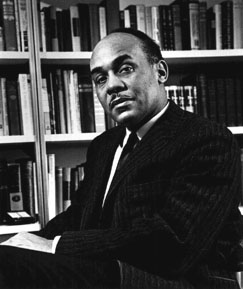
Ralph (Waldo) Ellison (1 maart 1913 – 16 april 1994)
De Amerikaanse dichter Robert Traill Spence Lowell werd geboren op 1 maart 1917 in Boston. Hij werd bekend als een “Confessionalist” dichter. Hij stamde uit een beroemde familie uit Massachusetts, maar studeerde vrijwillig aan Kenyon College, een kleine universiteit in Ohio. De relatie met zijn familie bleef zijn hele leven ambivalent. Als dienstweigeraar zat hij een jaar in de gevangenis tijdens WO II. Zijn tweede dichtbundel Lord Weary’s Castle kreeg in 1946 de Pulitzerprijs. Twee bundels, Life Studies en For the Union Dead, bevatten zijn bekendste werk en verschenen in 1959 en 1964. De gedichten vormen een uitdrukking van zijn persoonlijke strijd en zijn politieke overtuiging. Voor de bundel The Dolphin kreeg hij in 1973 voor de tweede keer de Pulitzerprijs.
The Drunken Fisherman
Wallowing in this bloody sty,
I cast for fish that pleased my eye
(Truly Jehovah’s bow suspends
No pots of gold to weight its ends);
Only the blood-mouthed rainbow trout
Rose to my bait. They flopped about
My canvas creel until the moth
Corrupted its unstable cloth.
A calendar to tell the day;
A handkerchief to wave away
The gnats; a couch unstuffed with storm
Pouching a bottle in one arm;
A whiskey bottle full of worms;
And bedroom slacks: are these fit terms
To mete the worm whose molten rage
Boils in the belly of old age?
Once fishing was a rabbit’s foot–
O wind blow cold, O wind blow hot,
Let suns stay in or suns step out:
Life danced a jig on the sperm-whale’s spout–
The fisher’s fluent and obscene
Catches kept his conscience clean.
Children, the raging memory drools
Over the glory of past pools.
Now the hot river, ebbing, hauls
Its bloody waters into holes;
A grain of sand inside my shoe
Mimics the moon that might undo
Man and Creation too; remorse,
Stinking, has puddled up its source;
Here tantrums thrash to a whale’s rage.
This is the pot-hole of old age.
Is there no way to cast my hook
Out of this dynamited brook?
The Fisher’s sons must cast about
When shallow waters peter out.
I will catch Christ with a greased worm,
And when the Prince of Darkness stalks
My bloodstream to its Stygian term . . .
On water the Man-Fisher walks.
Robert Lowell (1 maart 1917 – 12 September 1977)
Howard Nemerov werd geboren op 1 maart 1920 in New York. Afgestudeerd in 1937 vertrok hij naar Harvard waar hij een Baccalaureaat in de Letteren verwierf. Hij diende eerst als piloot van de “RAF-coastal Command” die ingezet werd voor het bombarderen van Duitse schepen in de Noordzee tijdens WO II. Later werd hij overgeplaatst naar een Amerikaanse eenheid van de Royal Canadian Air Force. In 1944 huwde hij met een Engelse met wie hij zich na de oorlog vestigde in New York. In die tijd verscheen zijn eerste dichtbundel “The Image and the Law”. In 1946 werd hij leraar Engels aan het Hamilton College, Clinton, New York. In 1948 verhuisde hij in die functie naar Bennington College in Vermont waar hij bleef onderwijzen tot 1966, jaar waarin hij ging doceren aan de Brandeis Universiteit in Waltham, Massachusetts en de Universiteit van Washington. De dichter ontving talrijke bekroningen voor zijn werk. Hij werd opgenomen als lid van de Academie van Amerikaanse dichters in 1976 en benoemd tot “Poet Laureate” van de U.S.A.van 1988 tot 1990. De auteur stierf aan kanker in 1991 in University City, Missouri.
Insomnia I
Some nights it’s bound to be your best way out,
When nightmare is the short end of the stick,
When sleep is a part of town where it’s not safe
To walk at night, when waking is the only way
You have of distancing your wretched dead,
A growing crowd, and escaping out of their
Time into yours for another little while;
Then pass ghostly, a planet in the house
Never observed, among the sleeping rooms
Where children dream themselves, and thence go down
Into the empty domain where daylight reigned;
Reward yourself with drink and a book to read,
A mystery, for its elusive gift
Of reassurance against the hour of death.
Order your heart about: Stop doing that!
And get the world to be secular again.
Then, when you know who done it, turn out the light,
And quietly in darkness, in moonlight,
or snowlight
Reflective, listen to the whistling earth
In its backspin trajectory around the sun
That makes the planets sometimes retrograde
And brings the cold forgiveness of the dawn
Whose light extinguishes all stars but one.
Howard Nemerov (New York, 1 maart 1920)
De Amerikaanse dichter Richard Wilbur werd geboren op 1 maart 1921 in New York en studeerde aan Amherst College en Harvard. Van 1943 tot 1945 diende hij in het Amerikaanse leger. Dertig jaar lang werkte hij als docent aan de Wesleyan University en aan Smith College. Zijn eerste bundel The Beautiful Changes and Other Poems verscheen in 1947. Er volgden meer bundels, waaronder New and Collected Poems in 1989. Wilbur is ook vertaler, gespecialiseerd in de 17e eeuwse werken van Molière en Racine. Hij ontving o.a. twee maal de Pulitzerprijs en ook de National Book Award.
June Light
Your voice, with clear location of June days,
Called me outside the window.You were there,
Light yet composed, as in the just soft stare
Of uncontested summer all things raise
Plainly their seeming into seamless air.
Then your love looked as simple and entire
As that picked pear you tossed me, and your face
As legible as pearskin’s fleck and trace,
Which promise always wine, by mottled fire
More fatal fleshed than ever human grace.
And your gay gift—Oh when I saw it fall
Into my hands, through all that naïve light,
It seemed as blessed with truth and new delight
As must have been the first great gift of all.
In the Smoking Car
The eyelids meet. He’ll catch a little nap.
The grizzled, crew-cut head drops to his chest.
It shakes above the briefcase on his lap.
Close voices breathe, “Poor sweet, he did his best.”
“Poor sweet, poor sweet,” the bird-hushed glades repeat,
Through which in quiet pomp his litter goes,
Carried by native girls with naked feet.
A sighing stream concurs in his repose.
Could he but think, he might recall to mind
The righteous mutiny or sudden gale
That beached him here; the dear ones left behind . . .
So near the ending, he forgets the tale.
Were he to lift his eyelids now, he might
Behold his maiden porters, brown and bare.
But even here he has no appetite.
It is enough to know that they are there.
Enough that now a honeyed music swells,
The gentle, mossed declivities begin,
And the whole air is full of flower-smells.
Failure, the longed-for valley, takes him in.
Richard Wilbur (New York, 1 maart 1921)
De Spaans-Amerikaanse schrijfster en dichteres Mercedes de Acosta werd geboren op 1 maart 1893 in New York. In 1920 verscheen haar eerste roman. Zij werd ontdekt door theateragente Bessie Marbury die haar contracten bezorgd met MGM en andere grote studio’s in Hollywood, waar zij Marlene Dietrich en Greta Garbo leerde kennen. In 1960 verscheen haar autobiografie „Here lies the heart“. Meer dan door haar literaire werk is de Acosta bekend geworden door haar (vermeende) affaires met Isadora Duncan, Anna Pawlowa, Eva Le Gallienne, Salka Viertel, Greta Garbo en Marlene Dietrich.
Uit: Here Lies The Heart
“When we left Bombay, Consuelo and I kept our promise to Baba and went on quite an extensive tour of India. Among the many places we saw I was most charmed, in a worldly sense, by the little city of Jaipur built entirely of pink stone. Here was a fairy tale world–a world from a Bakst ballet. In front of the pink palace with its ornate door of gold stood Indian guards wearing only short white skirts and white jaipurs, and the most beautiful green turbans draped in a very special manner. I saw a string of elephants belonging to the Maharajah sauntering past the palace. Thrown over their backs were blankets of the most exquisite gold material, while on their heads sat naked boys in the Buddha posture wearing brilliantly colored turbans, and directing the elephants with sharp cries.
Because of the paintings and photographs I had seen of the Taj Mahal I had expected to dislike it. But we had the good fortune to arrive in Agra by full moon, and as I stood in front of the Taj I was overcome by its white beauty. It seemed to me a living thing, and when I touched it the stone was warm and lifelike. The heat of the sun on the stone did not cool off at night.”
Mercedes de Acosta (1 maart 1893 – 9 mei 1968)
De Amerikaanse schrijver Steven Barnes werd geboren op 1 maart 1952 in Los Angeles. Steven Barnes, veelzijdig auteur en scriptschrijver die onder meer schreef voor de tv-series Twilight Zone, Andromeda en Stargate werd voor zijn fantasyromans genomineerd voor de Hugo Award en mag zich met De Cestus deceptie scharen tussen de auteurs die de Star Wars-sage hebben opgebouwd
Uit: Zulu Heart
“The day had been glorious. The southern sun gilded the sparse clouds as they frolicked in a fair wind. It was a time of slow delicious sweltering. Now, at last, the day drew to a close. The past seventy-two hours had provided recreation and renewal for the family of Bilalistan’s youngest Wakil, Kai of Dar Kush. For those precious hours, duty no longer deviled him.
For now, Kai could release the tension from body and mind, allowing both to dwell only in the fathomless crystal blue of the waters, hands and spirit stretching out for the rainbow of tropical fish fluttering just beyond reach.
He dove deep, suspended as if by the hand of an invisible djinn, hovering above the twisted wreck of a triple-master that had foundered fifty years before his birth. That there was another ship, far more recently scuttled, in the waters east of the islands, he knew too well. The sight of this wreck sobered rather than enthralled. It reminded him of the carnage that his father’s gold had, if not wrought, endorsed after the fact.
The sailors’ bones scattered in its shattered hull were not the first, nor would they be the last to drift in the depths of the Songhai. The deceptive tranquility of these islands had concealed fierce and deadly battle as the nations of Africa contested for the New World.”
Steven Barnes (Los Angeles, 1 maart 1952)
Franzobel is het pseudoniem van de Oostenrijkse schrijver, dichter en schilder Stefan Griebl. Hij werd geboren op 1 maart 1967 in Vöcklabruck. Griebl studeerde germanistiek en geschiedenis. Hij publiceert zijn werk via eigen uitgaven, kleine uitgeverijen of via „Mail-Art“ projecten. Van 1994 tot 1998 leidde hij de kleine uitgeverij Edition ch. In 1995 ontving hij de Ingeborg-Bachmann-Preis. Zijn werd bestaat uit talrijke toneelstukken, proza en poëzie, waarin hij het experiment niet schuwt. Hij woont afwisselend in Wenen, Pichlwang en Buenos Aires.
Gerätschaft. Ein Lied
Stell dir einmal vor, du bist ein Fußballtor,
so maschig, breit und dick, das wäre nicht sehr schick,
denke dir jetzt nur, du wärst eine Springschnur,
so ach wie lang und dünn, auch das ist nicht so schön,
jetzt glaube erst einmal, du bist so ein Turnsaal,
hölzern, groß und mit Geruch, das wäre doch ein Huch,
da lobe ich mir doch, das Holz aus dem ich Stoff,
gerne bin ich also weiter, die Latte einer Sprossenleiter.
Paragleiten
Par excellence und pars pro toto
Paroli bieten, nein Partei, pardon,
in lautlich gleicher Weise Paradigma,
Partykiller mit von der kredenzten,
eine gute ist im Parameter,
Partie, die Parenthese ist sie selbst,
dazu der Bräutigam im Parka,
in der Parallele Parasol und fährt
sich selbst in die Parade, leider,
in lautlich gleicher Weise Partisan,
sein Schwert, es heißt schon Kuh
und Ende für den Drachenflieger
Franzobel (Vöcklabruck, 1 maart 1967)
(Nagekomen bericht)
Aanstaande zondag zendt de NPS op Nederland 2 om 19.00 uur de documentaire Dinner with Murakami uit in het programma Het uur van de wolf.
De japanse schrijver Haruki Murakami werd geboren in Kyoto op 12 januari 1949. Zijn vader was een Boeddhistische priester, zijn moeder een koopmansdochter. Beide ouders gaven les in Japanse literatuur, maar daarnaast heeft Murakami zich altijd voor Amerikaanse literatuur geïnteresseerd en onderscheidde zich daarmee al snel van andere Japanse auteurs. In Tokyo volgde hij een opleiding toneel aan de Waseda universiteit in Tokyo. Na zijn studie opende Murakami een jazz-bar in Tokyo. Veel van zijn boeken (zoals ‘Dance, dance, dance’ 1988) die later verschenen, behandelen niet voor niets een muzikaal thema. Als auteur beleeft Murakami zijn echte doorbraak in 1987 met ‘Norwegian Wood’. Andere romans van Murakami zijn onder andere ‘South of the Border, West of the Sun’ (1992), ‘Sputnik Sweetheart’ (1999) en ‘After Dark’ (2004).
Uit: Hunting knife (Vertaald door Philip Gabriel)
“Two rafts were anchored offshore like twin islands. They were the perfect distance to swim to from the beach—exactly fifty strokes out to one of them, then thirty strokes from one to the other. About fourteen feet square, each raft had a metal ladder, and a carpet of artificial grass covering its surface. The water, ten or twelve feet deep at this point, was so transparent you could follow the chains attached to the rafts all the way down to the concrete anchors at the bottom. The swimming area was enclosed by a coral reef, and there were hardly any waves, so the rafts barely bobbed in the water. They seemed resigned to being anchored in that spot with the intense sun beating down on them day after day.
I liked to stand out there and look back at the shore, at the long white beach, the red lifeguard tower, the green row of palm trees—it was a gorgeous scene, maybe a little too picture-postcard perfect. Off to the right, the beach ended in a line of dark craggy rocks that led to the hotel cottages where my wife and I were staying. It was the end of June, still early in the tourist season, and there weren’t many people at the hotel or on the beach.
There was an American military base nearby, and the rafts lay right in the flight path of the helicopters returning to it. The planes would appear offshore, bisect the space between the rafts, then zoom over the palm trees and disappear. They flew so low you could almost make out the expressions on the faces of the pilots. Still, except for those helicopters swooping overhead, the beach was a sleepy, quiet place—the perfect spot to be left alone on vacation.”
Haruki Murakami (Kyoto, op 12 januari 1949)











